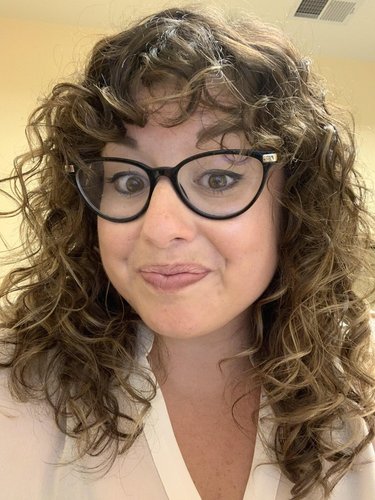Legal Hand: ‘Our mission is to inform and empower’
A new widow had never driven. She had no license. She did, however, have her husband’s car. But, without a driver’s license, she couldn’t register the car to park it on the street.
A neighbor said, “Hey, if you title it to me, I can register it in my name and I can then park it.”
The widow didn’t know where to turn. She thought maybe she should have a contract with the neighbor.
She called 518-400-5544. That is the number for the Legal Hand Call-In Center. Any Schenectady or Albany county resident seeking help can call that number or email .
The call-in center, which started just over a year ago, is run out of Schenectady’s Center for Community Justice, which is celebrating its 50th anniversary this year.
Legal Hand was started in 2015 by Helaine Barnett, and Cheryl Vallee, director for the Justice Center, believes it will eventually become a national program.
There is also a Legal Hand center serving Nassau and Suffolk counties on Long Island, run out of Hofstra’s law school, and another serving Westchester County, run out of Pace University’s law school. And there are three Legal Hand storefront centers — in Brooklyn, Queens, and the Bronx.
A central principle for each of them is that neighbors are helping neighbors.
The widow who called the local Legal Hand for help with a contract learned instead she didn’t have to give title to her neighbor to have her husband’s car registered in that name.
“She can give the DMV permission to register it in someone else’s name, even though she is the title holder,” explained Bethany Cereo, the center’s attorney. This would avoid the “huge issue” that could arise with two people claiming ownership and a contract that may not be enforceable, said Cereo.
“That’s a piece of information that was entirely crucial to her that made a situation so much easier,” says Cereo in this week’s Enterprise podcast. “All she had to know was, you just have to give the DMV permission to be registered in someone else’s name and then you can park it on the street without transferring title and possibly losing ownership.”
Such crucial, often life-changing, information is regularly dispensed at Legal Hand through trained volunteers.
“We offer assistance with public benefits, domestic violence, housing and employment law, family and elder law, and other categories too,” said Linds Hall, the center’s manager. “The only thing that we don’t assist on is divorce or criminal issues, and we don’t provide legal advice or representation.
“Rather, our mission is to inform and empower our visitors by providing them with all of the information that they need and showing them all of the resources that they have at their disposal so they can be sure that they know their rights and they can make the right decision for their individual situation.”
“We’re surprised every day with some of the questions people call in and the answers we’re trying to find for people,” said Cereo.
Often, Cereo said, a caller has seen something on the internet that seems relevant to their personal situation but actually isn’t.
Cereo has spent her career providing services, through not-for-profit organizations, to people who need help. In college, she majored in psychology with a minor in women’s studies.
Her first job after graduating was running a domestic violence transitional housing shelter and “doing a lot of outreach and advocacy and direct services to those survivors,” she said.
The people affected by domestic violence, Cereo said “have tons of intersections with poverty and race and many things working against them so I really wanted to use what I had to help.”
Cereo got to a point, she said, where she wanted to help more so she went to law school and became an attorney. Since then, she has worked only in public nonprofits doing pro-bono legal work for individuals, first through a mental-health association in Buffalo and then with Legal Aid in Albany, where she currently has her role as the Legal Hand attorney.
Cereo knows firsthand the difference it makes in the courtroom for a survivor to have an informed attorney to help. While her work at Legal Hand is a break from the more tumultuous nature of domestic-violence advocacy in the courtroom, Cereo said, “I’m still doing the work that’s important to me, which is access to justice but in a slightly different way.”
Hall, for her part, has had a variety of jobs over the years, including practicing as a massage therapist for a decade. She loved that work, Hall said, “because of the way that it allowed me to connect with people one-on-one and to have a meaningful impact on the way they felt both physically and emotionally.”
A recent personal trauma has made Hall acutely aware of the importance of community support, something she works to build every day in her job at the center.
Her apartment building caught fire in March of 2021. “Me and my wife experienced a really devastating house fire that really opened my eyes to how quickly people’s lives can change in a single day and how crucial community support is,” said Hall.
She went on, “So I really love this work because it kind of taps into both things. I love seeing the impact that our volunteers and myself and Bethany can make with a single conversation, providing people with information and resources, but also the sense of community that comes from a warm and welcoming interaction with a stranger, as well as the confidence to solve their own problems.”
Since the Legal Hand Call-In Center started in January of 2022, it has reached more than 5,500 people and provided direct one-on-one services to more than 700 people, which works out to an average of about 60 people per month, said Hall.
The visitors are pretty evenly split between Albany and Schenectady counties. Both Cereo and Hall said there is a wider need for the free service and a goal for 2023 is to expand coverage to Saratoga and Rensselaer counties with a long-term goal of offering services to the entire Capital Region. Expansion would entail costs so finding more funding is key, they stressed.
“One of the things that we’re most proud of is that 40 percent of our visitors came to us recommended by other community organizations,” said Hall, “which tells us that, first of all, these other community organizations we built relationships with, they trust us enough to send people to us.”
Another 14 percent of Legal Hand callers are referred by friends or family members who have used the service, which Hall believes reflects “the kind of warm and welcoming service” volunteers are trained to provide.
Over the course of 2022, Legal Hand trained nearly 30 volunteers, Hall said. Some of them stayed past their initial six-month commitment.
Volunteers have to live, work, or go to school in Albany or Schenectady counties; they must be at least 18 years old, relatively comfortable with technology, and they cannot be lawyers.
“We have students, we have former teachers, we have policy analysts, mediators, and caseworkers,” said Hall.
The entire program, from training to offering information to callers, is virtual. Prospective volunteers attend an online information session to learn the basics of the call-in center and are then provided with an application.
Their acceptance letter has a link to an orientation session, which goes into depth on the training and the day-to-day functions of the Legal Hand. The volunteers get links to training modules in a variety of categories like housing, family law, and public benefits; they have three weeks to complete the online, self-paced training.
“At any point, if they need one-on-one support from myself or Bethany, they can reach out,” said Hall.
After that, the volunteers go through a series of five virtual simulations over the course of two weeks, led by Cereo and Hall, to prepare them for their first shift. Each volunteer is also given a backpack that has a laptop, a headset, a mouse — “everything they need so that they can volunteer from the comfort of their home,” said Hall.
The volunteers are assigned shifts based on their availability and preferences. Hall and Cereo meet with volunteers at the start of their shifts to review what calls might already be in the queue and just to check in on them.
“Bethany and I will be listening in,” said Hall. “And we’re providing them with real-time assistance.” The pair can send messages through chat and resources to explain to the caller.
“With our newer volunteers, we’re really hands-on, making sure they feel supported,” said Hall. “with some of our longer-time volunteers, we’re not doing much at all.”
Hall stresses, “We want to take community members and put that power in their own hands to bring to their own community …. We want to have ordinary people able to help other people, even if they’re not lawyers.”
Hall concluded by reading a statement from one of the longtime volunteers, a woman she called “amazing,” adding, “Bethany and I love her so much.”
“It has been a truly great experience being able to play a positive role in someone’s day by informing them about their options and rights …,” the volunteer said. “I’ve grown immensely since beginning training and answering calls.
“Before this, I would have been scared to talk to people over the phone, especially people I don’t know. I now feel comfortable calling anyone. Also I’ve taken some of the tidbits that I’ve learned through the calls back to people in my life if they have similar questions.”
Hand said of the volunteers, “It’s really important to us that they feel the work is meaningful and that it’s helping them to go out and increase access to justice within their own family and friends, too.”
Cereo concluded, “There’s absolutely no barriers to us trying to help you the best we can.”
****
The website for the Legal Hand Call-In Center — https://www.legalhand.org/schenectady-albany — has information on becoming a volunteer, on making contributions, and on getting questions answered; it also lists the daily calling hours — no appointment is needed.



